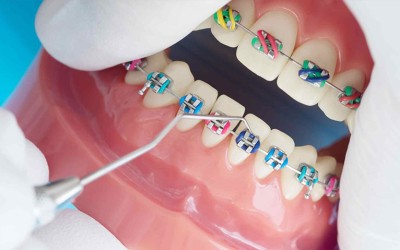Preventing Cavities in Children: 9 Golden Rules

Preventing Cavities in Children: 9 Golden Rules
- 4 January 2024
- 3417 views
Take preventive measures for cavities in children with Dentevim! Explore experts’ advice on the 9 golden rules for healthy smiles.
This content is for informational purposes only and does not replace medical advice, diagnosis, or treatment. Please consult a healthcare professional for any health concerns.
Table of Contents
Many factors affect the dental health of children. Among these factors, proper oral care habits, balanced nutrition, and regular dental check-ups play a crucial role. Cavities, or tooth decay, stand out as a common issue that can occur during childhood. Taking the right steps to prevent these problems is essential in keeping children's smiles healthy and bright. Therefore, preventive measures for cavities in children are highly valuable.
Why Is Children's Dental Health Important?
Preserving the dental health of children is of great significance for their overall health and quality of life. Healthy teeth enable children to eat properly, develop speech skills and smile confidently. Furthermore, adopting healthy dental care habits at an early age can prevent serious dental issues in later years.
Causes of Cavities in Children
Cavities in children occur when the enamel of the teeth is eroded by acids. Bacteria in the mouth consume sugary and starchy foods, producing acids that weaken the tooth enamel and eventually lead to decay.
Some reasons why children may be prone to cavities include:
- Inadequate Oral Hygiene: Irregular brushing, failure to use dental floss, or neglecting mouthwash can lead to the accumulation of bacterial plaque on teeth, resulting in cavities.
- Insufficient Fluoride Intake: Fluoride is a crucial mineral that strengthens tooth enamel and helps prevent decay. Inadequate fluoride intake can increase the risk of cavities.
- Unhealthy Eating Habits: Excessive consumption of sugary and starchy foods facilitates acid production by bacteria, potentially causing tooth decay.
- Care for Primary Teeth: Cavities in children often start in the temporary teeth of children, potentially causing issues in the transition to permanent teeth.
- Pacifier or Bottle Use: Continuous use of a pacifier or bottle, especially during sleep, can increase acid production in the mouth, raising the risk of cavities.
9 Preventive Measures for Cavities in Children
Several preventive measures can be taken to avoid cavities in children:
- Instill Regular Tooth Brushing Habits: Teaching children regular tooth brushing at an early age is a fundamental step in preventing cavities.
- Encourage the Use of Fluoridated Toothpaste: Using fluoride toothpaste appropriate for their age helps support children's dental health.
- Limit Consumption of Sugary and Acidic Foods: Sugary and acidic foods can damage the teeth' enamel and facilitate decay. You should teach your children to restrict the intake of these foods.
- Promote Drinking Water: Drinking water is essential not only for general health but also for maintaining children's dental health by cleansing acids and bacteria from the mouth.
- Don't Miss Regular Dental Check-ups: Taking your children for regular dental check-ups is crucial for early detection and treatment of potential issues.
- Teach the Use of Dental Floss: Instructing children on the use of dental floss helps clean plaque from between teeth, preventing cavities.
- Monitor Nighttime Pacifier Use: If children use pacifiers or bottles at night, this may trigger tooth decay. Encourage them to drink water and limit their sugary-drink intake to minimize the risk of cavities.
- Promptly Address Painful Teeth: If your child experiences toothaches or other issues, consult a dentist promptly for early intervention. Early intervention can prevent the issue from getting bigger.
- Instill a Positive Dental Care Culture: Teach children that dental care is not just a duty but also a healthy habit. Instilling a positive dental care culture helps them maintain these habits throughout life.
Preventing cavities in children is crucial for a healthy smile and overall well-being. By implementing the 9 golden rules mentioned above, you can instill healthy dental habits in your children, helping them grow with beautiful smiles.
Do not forget that good habits that are instilled in early childhood are essential for children’s dental health in the future.







